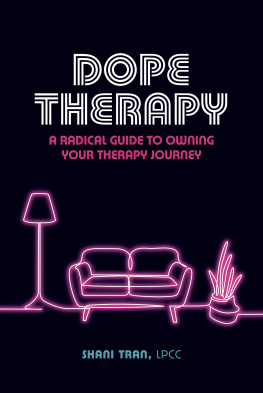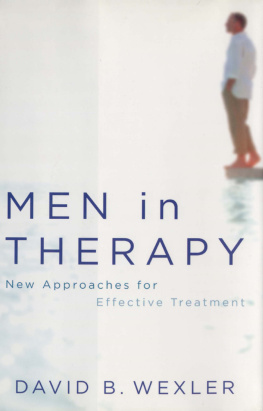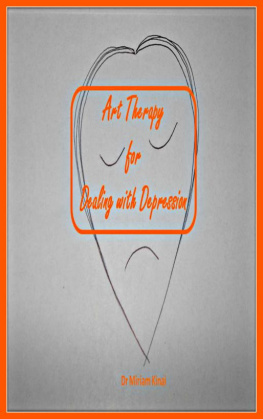Self-Therapy, Vol. 3
A Step-by-Step Guide to Using IFS for Eating Issues, Procrastination, the Inner Critic, Depression, Perfectionism, Anger, Communication, and More
Jay Earley, PhD

Self-Therapy, Vol. 3: A Step-by-Step Guide to Using IFS for Eating Issues, Procrastination, the Inner Critic, Depression, Perfectionism, Anger, Communication, and More
Copyright 2016 by Jay Earley. All rights reserved.
Without limiting the rights under copyright reserved above, no part of this publication may be reproduced, stored in or introduced into a retrieval system, or transmitted, in any form, or by any means (electronic, mechanical, photocopying, recording, or otherwise) without the prior written permission of both the copyright owner and the above publisher of this book.
FIRST EDITION AMAZON eBOOK

140 Marina Vista Ave.
Larkspur, CA 94939
415-924-5256
www.patternsystembooks.com
Acknowledgments
I am deeply grateful to Dick Schwartz for creating such a brilliant method of therapy and working so hard to spread this knowledge throughout the world. IFS has changed my life and the lives of so many of my clients and students.
I appreciate the participants in my Advanced IFS Classes for helping me deepen my understanding of this material as I taught it to them.
I received very helpful feedback that improved this book from Ariane Korth, Julia Sullivan, Karen Locke, Ingemar Fransson, Landon Hall, Lisa Giles, Esther Michelson, and Katrin Kirojood .
Kira Freed has done a thorough job of editing and proofreading the entire work and laying out the books interior, including producing graphics for the book. Robert Henry converted it to the Kindle format. Jeannene Chase Langfords creative eye is always available for striking book cover design. My virtual assistant, Mary Jane Stern, has been continually in the background helping with innumerable tasks. The cool illustrations were done by Karen Donnelly.
Contents
Introduction
If you are familiar with the basic concepts of IFS and want to learn how to apply it to some common psychological issues, this book is for you. My first IFS book, Self-Therapy , is a basic manual for IFS (Internal Family Systems Therapy). It has helped countless people resolve and heal from troubling psychological issues, as I have discovered from the many emails I receive from people all over the world telling me what a difference the book (and IFS) has made in their lives.
Self-Therapy teaches you how to work on yourself using IFS and how to do IFS peer counseling with a friend. It also gives therapists a thorough grounding in the basics of IFS and how to use it effectively with their clients.

IFS is a powerful form of individual therapy developed by Richard Schwartz, PhD, that has been spreading rapidly around the United States and the world, especially since 2005. It is user-friendly, spiritually oriented, and very effective in working with trauma as well as a wide variety of other psychological issues. IFS has been declared an evidence-based practice by the federal agency that is in charge of such designations. This means that it has been shown to be effective by peer-reviewed research.
Richard Schwartz is the founder of the Center for Self-Leadership, which offers professional trainings in IFS. See www.selfleadership.org for information about these trainings and other aspects of IFS.

Since Self-Therapy only covers the basics of IFS, I am publishing a series of sequels that include intermediate and advanced techniques and insights. Self-Therapy, Vol. 2 (2016) describes advanced techniques for working with protectors. This book, Self-Therapy, Vol. 3 , shows how to apply IFS to a variety of common psychological issues. I have chosen to include psychological issue in this book that (1) many people struggle with, (2) I have studied in some detail, and (3) have some complexity to them, so you will benefit from learning specialized ways of applying IFS to them. More volumes will follow.
Chapter 1 discusses how to work with Inner Critic parts. Chapter 2 deals with procrastination. Chapter 3 covers eating issues and food addiction. Chapters 4 and 5 deal with perfectionism and depression. Chapter 6 discusses how to work with anger and disowned anger using IFS. Chapter 7 shows how to recognize and work with the Passive-Aggressive Pattern. Chapters 8 and 9 deal with conflicts in love relationships; Chapter 8 shows how to understand the sequences of protectors and exiles that get triggered in an argument, and Chapter 9 explains how to communicate in a skillful manner during a conflict using IFS.
How to Use This Book
Self-Therapy, Vol. 3 will be useful to both professionals and the general public. In order to reach both audiences, I have taken the following approach. The book is written for the nonprofessional who wants to work on him- or herself using IFS. This material is also useful to therapists who want to use IFS with their clients. In addition, I have added comments that are directed specifically to therapists in sidebars titled Therapist Note .
Since this book is a sequel to Self-Therapy , it assumes that you have either read Self-Therapy or you have learned the basic IFS material in another way, perhaps by taking the IFS Level 1 professional training. Therefore, this book doesnt present the basics of IFS. To refresh your understanding of IFS before reading this book, review the Help Sheet in Appendix A or review Self-Therapy .
You dont need to have read Self-Therapy, Vol. 2 in order to understand this book. There are a few discussions in this book that you will understand better if you are familiar with Vol. 2 , but not many.
Experiential exercises throughout this book help you practice the IFS techniques that you are learning. I recommend that you do them, preferably with a friend, so the concepts in this book become grounded in your lived experience.
In this book, I use the Pattern System to show the relationships between types of parts. The Pattern System is a systematic, comprehensive way of understanding personality (see Appendix C).
Chapter 1
Your Inner Critic
Inner Critic protectors are some of the most common and difficult parts that we have to deal with, and IFS can be used to transform Inner Critics successfully. In fact, the IFS approach to the Inner Critic is more effective than any other approach I know. However, there are some complex issues to understand in working with Inner Critics successfully.

When you feel ashamed, hopeless, inadequate, or just plain awful about yourself, its usually because an Inner Critic part is attacking you. Inner Critics do this in a variety of ways, but most commonly they pummel you with negative messages about your self-worth. They may criticize your looks, your work habits, your intelligence, the way you care for others, or any number of other things.
They may:
evaluate and judge your feelings and behavior and sometimes your core self
















